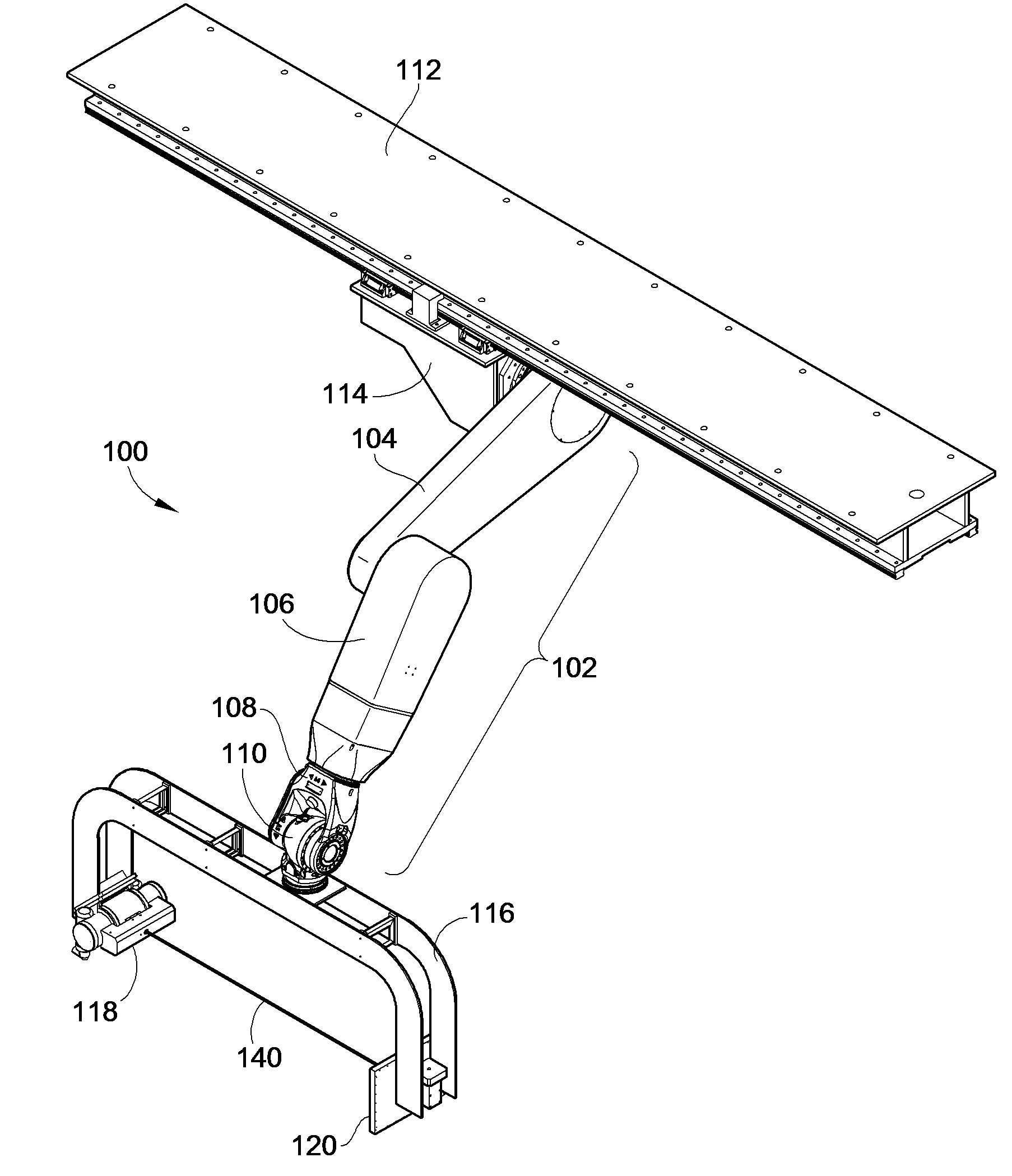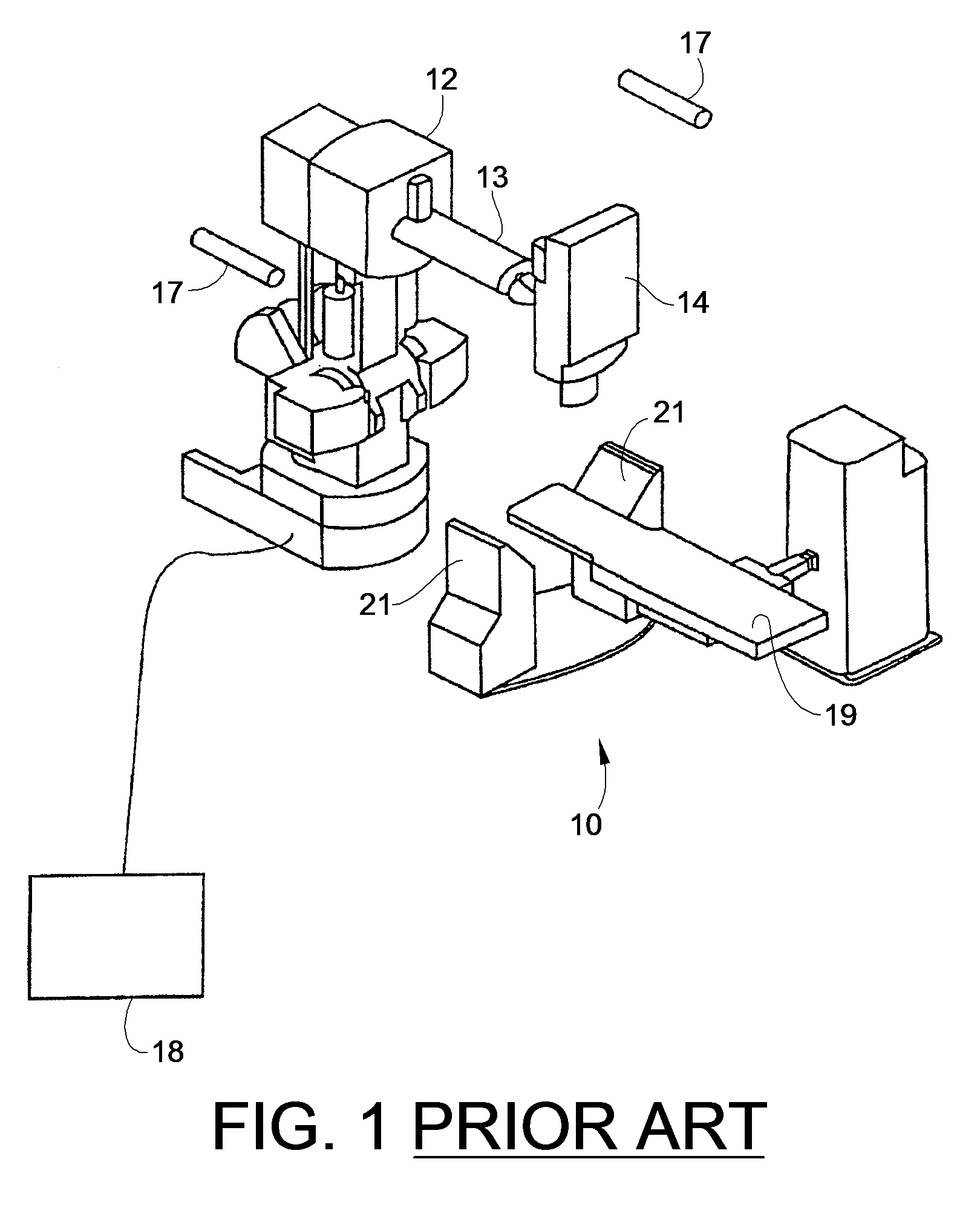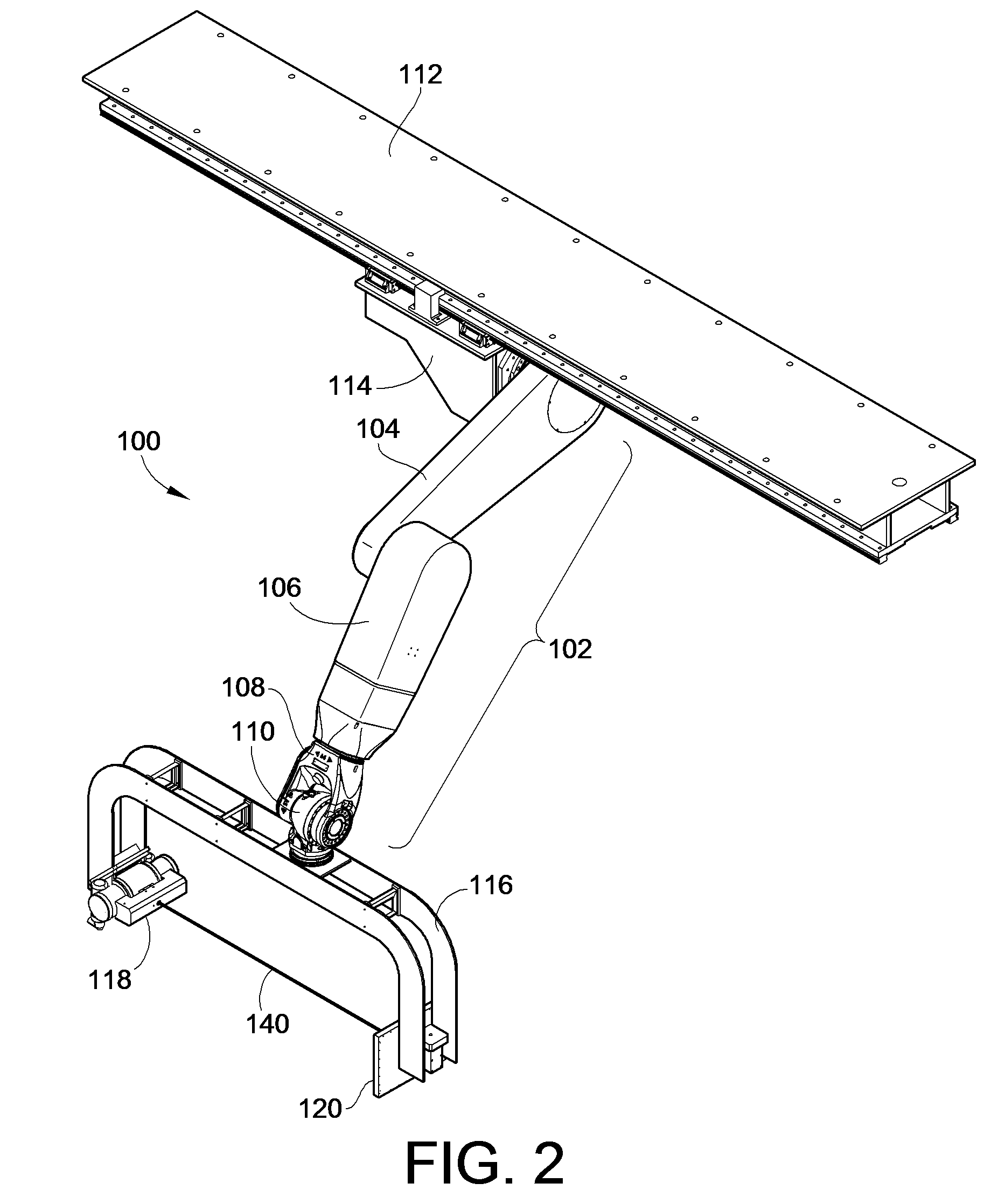Imaging positioning system having robotically positioned D-arm
a positioning system and robotic technology, applied in the field of patient imaging systems, can solve the problems of limited orientation of imaging views, limited space within the treatment room, and risk of disturbing alignment, so as to achieve convenient positioning and further precision in operation.
- Summary
- Abstract
- Description
- Claims
- Application Information
AI Technical Summary
Benefits of technology
Problems solved by technology
Method used
Image
Examples
Embodiment Construction
[0043]Turning now to FIG. 2, there is illustrated an embodiment of an imaging positioning system 100 constructed in accordance with the teachings of the present invention. While the following description will describe embodiments of the imaging positioning system in relation to its use in therapeutic radiation treatment operations and facilities, those skilled in the art will recognize that such embodiments and operating environments are provided by way of example only, and not by way of limitation.
[0044]In the illustrated embodiment, the imaging positioning system 100 utilizes a selectively compliant articulated robot arm (SCARA) type robot 102 that provides five rotations and one linear translation axis. Other embodiments of the present invention may utilize a standard six axis robot. The SCARA type robot 102 of the illustrated embodiment includes an upper arm portion 104, a lower arm portion 106, a wrist portion 108 and a coupling portion 110. Linear translation is provided along...
PUM
 Login to View More
Login to View More Abstract
Description
Claims
Application Information
 Login to View More
Login to View More - R&D
- Intellectual Property
- Life Sciences
- Materials
- Tech Scout
- Unparalleled Data Quality
- Higher Quality Content
- 60% Fewer Hallucinations
Browse by: Latest US Patents, China's latest patents, Technical Efficacy Thesaurus, Application Domain, Technology Topic, Popular Technical Reports.
© 2025 PatSnap. All rights reserved.Legal|Privacy policy|Modern Slavery Act Transparency Statement|Sitemap|About US| Contact US: help@patsnap.com



